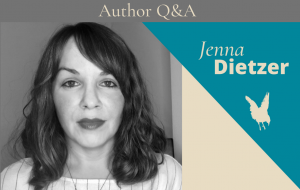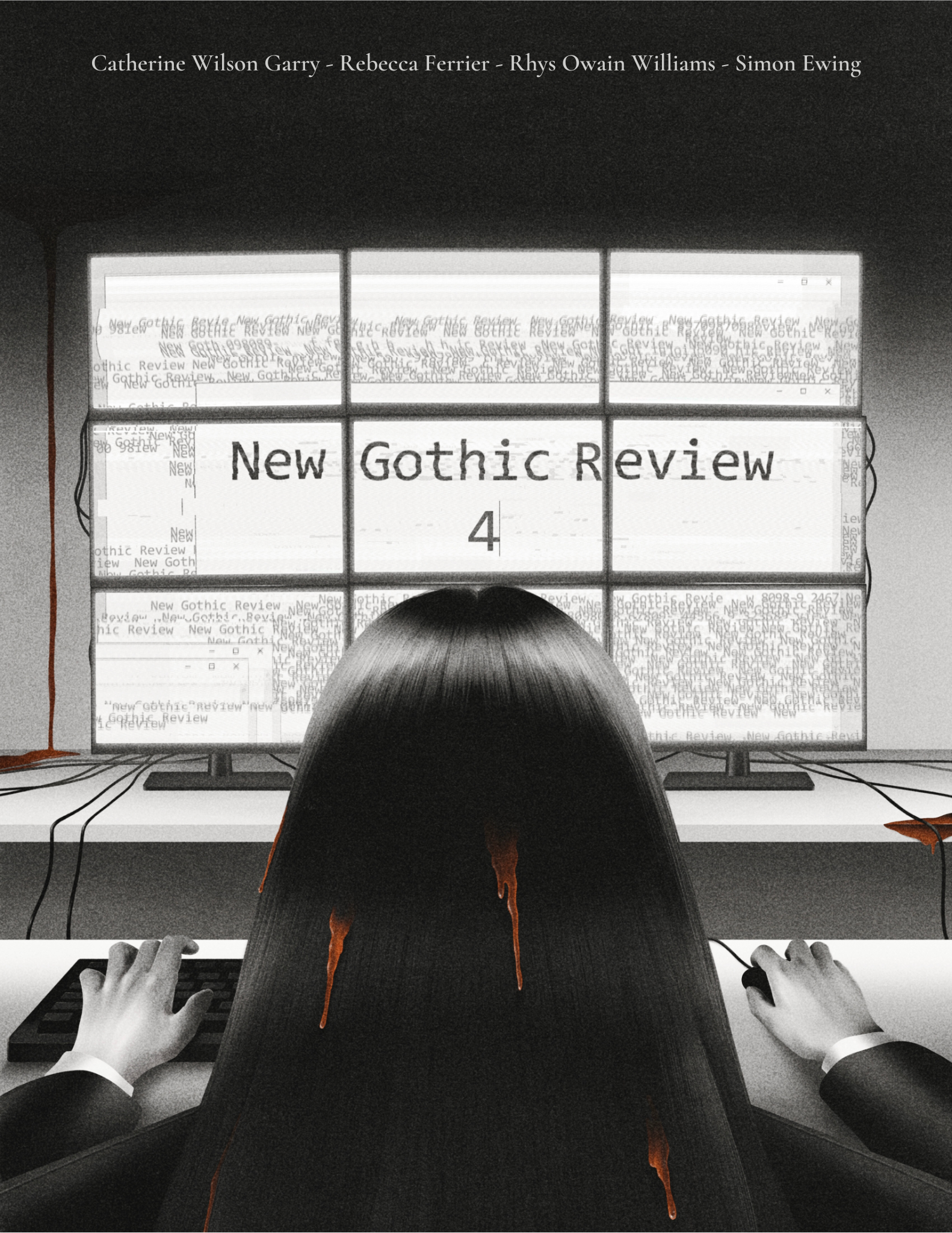
Jenna Dietzer is a technology process geek by day and writer by night. She resides in Tampa, Florida with her partner and their five fur-kids. Her short story “Why She Dreams of Alligators” is forthcoming in the Women of Horror Anthology Vol. 4 by Kandisha Press. You can find her on Twitter @duh_jenna.
We’re pretty faithless to formal definitions of what’s gothic and what isn’t. If you strip away the tropes and the familiar imagery, what do you feel is at the heart of gothic literature?
Isolation and disorientation. Instability of mind, body, or belief. Vulnerability. Psychological terror that’s inflicted from either the outside or inside. I find there is often a theme of attraction to or curiosity about things that can hurt us as well.
How do you feel “The Lovebugs” fits into that conception of gothic literature?
“The Lovebugs” hits most of those marks. Carissa comes from a long lineage of gothic heroines whose space and autonomy is threatened. An external terror, the lovebug infestation, forces her to confront realities about an internal terror, her romantic past. But the lovebugs are also there to increase the sense of urgency and dread.
Can you speak to any inspirations or influences for the piece? [or your work more generally]
Florida almost always provides inspiration for my stories, not only because I’m a native who’s very familiar with its quirks but also because it’s such a strange mix of cultures, institutions, and wildlife. I’m a little obsessed with juxtaposing dark plots with hot, sunny settings, too. Lovebug season is a natural phenomenon here, and it comes with its own folklore.
As for “The Lovebugs” specifically, the character of Brad is a mash-up of distressing experiences I had with a couple of my exes. There are probably a lot of people who will read “The Lovebugs” and recognize a “Brad,” a crazy ex, in their romantic past. After all, about a quarter of us have been subjected to some level of physical or sexual violence with a partner and statistics for being stalked by a partner aren’t far behind. I find the reality of him is what makes his character so unsettling.
What piece of writing advice do you hold most dear?
A professor of mine once told me that fiction is the art of the specific. Character and place can only come to life when you share the most meaningful and telling details. Yes, you can build the heart and body of your story on paper, but if there aren’t veins running between the two then your story has no pulse. So I always aim for specifics when constructing both characters and settings in my stories.
We hope this magazine assists in blurring the perceived lines between so-called “genre fiction” and “literary fiction.” As a writer, do you embrace one of these categories over another? Why?
This question hits close to home, as a writer who went down the classic path of English major to MFA graduate to professor of literature for a little while. In most MFA programs, there’s a taboo around bringing “genre” fiction to a workshop. But I was attracted to horror and fantasy from a very young age, and it’s hard to kill those roots in just two years. So I consider the MFA and all its literary leanings a boot camp of sorts. It improved all of my writing—genre or literary—going forward. I find the genre community more welcoming and supportive, though, especially when it comes to romance and women in horror.
As a reader, I love stories that mix the two, providing both deeper meaning and entertainment. To keep them distinct is to miss out on delicious possibilities. Give me everything!
We love learning about writers who have “gothic/ weird” tendencies but who typically aren’t labeled as “gothic.” Who’s someone you recommend we check out?
Mona Awad’s Bunny is often labeled as dark humor. Although it is humorous (sometimes laugh out loud) at the beginning of the novel, it pushes well beyond that label into completely disorienting and psychologically disturbing toward the end. It’s Heathers meets Frankenstein meets Neon Demon with a side of tango lessons. But even that description doesn’t do it justice. There’s so much weirdness to unpack. That’s what I love about it.
Samanta Schweblin’s Mouthful of Birds and Yoko Ogawa’s The Diving Pool are also two of my favorites when it comes to short story collections and novellas.




